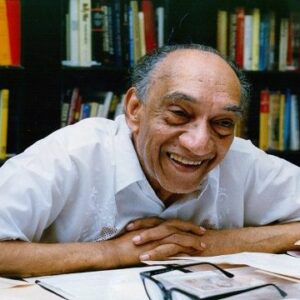Junius Richard Jayewardene was a Sri Lankan lawyer and politician who went on to become the country’s second President and remains one of the country’s most powerful political figures. His father was the country’s Chief Justice, and he was born into a rich family. He was a good student and a notable athlete in high school and college. Jayewardene studied law and worked as a lawyer for a while, but he soon became an activist for the Ceylon National Congress. Following the country’s independence, he joined the United National Party and served as finance minister. During his long political career, he rose to become the party’s leader and also sat in the opposition benches. In 1977, he also served as Minister of State and led the party to a landslide victory. Following the country’s triumph in 1977, he became Prime Minister, but later he was in charge of changing the constitution to make him President of Sri Lanka. Sri Lanka saw remarkable economic development during his presidency.
Childhood and Adolescence
Junius Richard Jayewardene, son of Honourable Justice Eugene Wilfred Jayewardene and Agnes Helen Don Philip Wijewardene, was born on September 17, 1906, in Colombo, Sri Lanka. His father went on to become the Chief Justice of Ceylon, and he came from a privileged family with significant ties to the legal profession. He was the oldest of eleven children in the family.
He received his primary education at the Bishop’s College in Colombo and then went on to study at the Royal College in the same city. He was a standout in both academics and extracurricular activities, representing the school in cricket, rugby, football, and boxing. In 1925, he was appointed head prefect of the Royal College.
He enrolled in the University College of Colombo in 1926 and the Colombo Law School two years later. He became an advocate and launched his own legal firm after graduating from law school.
J. R. Jayewardene’s Career
J. R. Jayewardene began his political career as an activist with the Ceylon National Congress (CNC) in 1938, after briefly practicing law. The CNC was involved in the country’s nationalist movement at the time, and he quickly rose to prominence. He was promoted to joint secretary two years after entering and elected to the State Council three years later.
He joined the United National Party (UNP) after Sri Lanka obtained independence from Britain and was appointed finance minister in the government created in 1948. After five years in that capacity, he was promoted to Minister of Food and Agriculture, a position he held for three years. Meanwhile, he rose to second in command of the party. In 1951, he was also elected as the chairman of Ceylon’s Board of Control for Cricket.
He had recurrent debates with Dudley Senanayake, the UNP’s leader, on the threat presented by the Sinhala-nationalist Sri Lanka Freedom Party throughout the latter half of the 1950s (SLFP).
He was named Minister of State after the UNP formed the government in 1965, and he focused his efforts on making tourism a big part of the Sri Lankan economy.
He became the leader of the opposition in the parliament after the UNP lost the 1970 elections to the SLFP. Due to Dudley Senanayake’s poor health, he effectively became the UNP’s leader at the same time. After Senanayake’s death three years later, he became the UNP’s leader.
In 1976, he resigned from the parliament after the SLFP administration extended its term. The UNP swept back to power in the following year’s elections, and he was elected Prime Minister of the country. However, he changed the constitution to give the country an executive presidency, and he was elected President on February 4, 1978.
He helped to usher in an era of free markets and boosted the private sector throughout his reign. In the 1983 presidential elections, he was re-elected as president.
Throughout the 1980s, Jayewardene was working to find a solution to the simmering problems between the Sinhalese and Tamil communities. He was opposed to a Tamil state, and he was ultimately unsuccessful in achieving a peaceful solution. In 1989, he announced his resignation as president.
Jayewardene’s Major Projects
During his stint as Minister of State from 1965 to 1970, when the subject of tourism was under his jurisdiction, J. R. Jayewardene transformed the country into a prominent tourist destination.
Sri Lanka had fast economic growth during his presidency, as he ushering in an era of free markets and bolstering the private sector.
Personal History and Legacy
In 1935, he married Miss Elina Bandara Rupasinghe. Ravindra ‘Ravi’ Vimal Jayewardene was the couple’s only child, a son.
J. R. Jayewardene died in Colombo on November 1, 1996, at the age of 90.
Estimated Net worth
Unknown.


